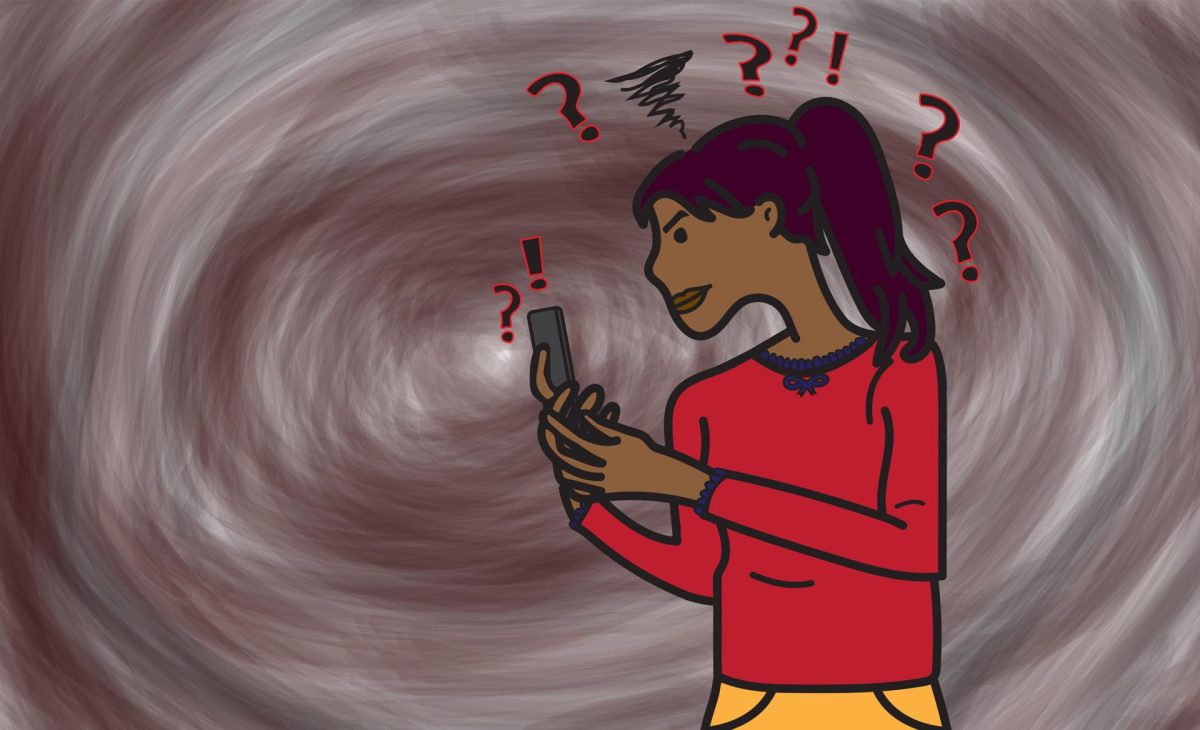
Avery MacNab
Days before Donald Trump’s presidential inauguration, Meta CEO Mark Zuckerberg announced in a video that the company was ending its third-party fact-checking program and moving to a “community notes” model similar to the system Elon Musk uses on his social platform X, formerly Twitter.
In the video, Zuckerberg, whose company includes Facebook, Instagram and WhatsApp, cited the election as a major influence on the company’s decision. He criticized “governments and legacy media” for allegedly pushing “to censor more and more.”
“We will take a more personalized approach to political content (for) people who want to see more of it in their feeds,” Zuckerberg said. “We will allow more speech by lifting restrictions on some topics that are part of mainstream discourse and focusing our enforcement on illegal and high-severity violations.”
Meta’s policy changes have been widely criticized by media outlets as a move to appease President Trump, who has been critical of Zuckerberg and Meta since Trump was temporarily banned from the platforms after the Jan. 6 Capitol riots. Meta later agreed to pay $25 million to settle a lawsuit related to the ban. Other media companies, including ABC and Paramount, have also settled Trump lawsuits over stories.
Christopher Bury, senior journalist in residence at DePaul’s College of Communication, believes some of the community notes have been helpful on social media. But, when it comes to highly technical knowledge or public health information, “Community notes are not going to be sufficient,” Bury said.
Bury and others worry that Meta ending the fact-checking program could lead to a dramatic uptick in disinformation, misinformation and hate speech, as it has on X’s platform in the months since Elon Musk made similar policy changes.
“It’s a loss for American consumers, but it also means that there’s much more responsibility on them to be critical thinkers and try to find reliable sources,” Bury said. “At the end of the day, according to our current law, social media companies are not responsible for the content put out by posters, no matter how inaccurate it is.”
Christina Steed, an adjunct instructor in DePaul’s College of Communication, also believes that these policy changes could have implications for disinformation and misinformation.
“There are no agreed-upon understandings of the guardrails and standards for reporting a story you typically would get from a trained journalist perspective,” Steed said.
Julia Mlodkowska, a DePaul accounting major who’s between her sophomore and junior year, called Meta’s plan “insane.“
“Now anyone can say anything, and as long as enough people back them up, it’s going to be taken as truth,” Mlodkowska said. “But it’s not.”
On Feb. 25, the Trump administration effectively further upended the media by stripping the White House Correspondents’ Association of its ability to select which media correspondents are allowed in the White House press pool.
Those banned from covering White House press gatherings include Reuters and Associated Press. The change came when the Associated Press lost a lawsuit against the administration after the white house suspended the organization from the press pool for refusing to change the name of the Gulf of Mexico in the Associated Press style book.
The “press pool” refers to a small, rotating group of journalists who accompany the president at all times, covering events like photo ops, Q&As, cabinet meetings and other occasions where space is limited for camera crews and reporters.
Traditionally, the White House Correspondents’ Association, which represents the broader press corps, has overseen the assignment of pool members.
White House Press Secretary Karoline Leavitt said in a news briefing that a White House press team “will determine who gets to enjoy the very privileged and limited access in spaces such as Air Force One and the Oval Office.”
Eugene Daniels, president of the White House Correspondents’ Association, issued a statement in response to the Trump administration’s abrupt press pool changes. He said the association will continue to fight for “comprehensive access, full transparency, and the right of the American public to read, listen to, and watch reports from the White House, delivered without fear or favor.”
“This move tears at the independence of a free press in the United States,” Daniels said. “It suggests the government will choose the journalists who cover the president. In a free country, leaders must not be able to choose their own press corps.”
Bury called the press ban an effort to favor pro-Trump media over independent news organizations that will ask harder questions.
“It’s an attempt to shape coverage of the White House in the most favorable propagandist way for Donald Trump,” Bury said.“It’s something we’ve never seen before in modern history.”
Related Stories:
What does Trump’s targeting of ‘woke programming’ in the arts mean for Chicago’s artists?
Musk expands influence in Washington as DOGE gains traction
Is America being stolen by billionaires? Will journalists, lawyers fight back amid compromised values?